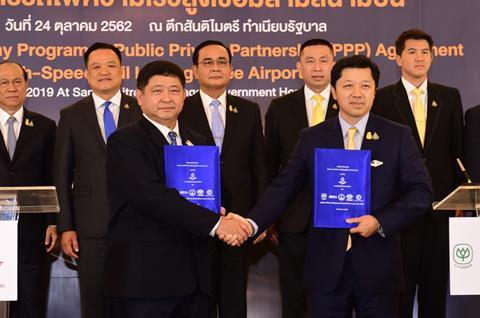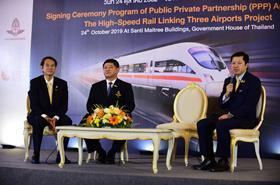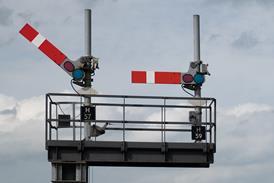
THAILAND: The public-private partnership agreement for the construction of a 220 km/h fast rail link between three airports around Bangkok was signed by State Railway of Thailand and the Eastern High-Speed Rail Link Three Airports Co Ltd consortium on October 24.
The consortium is led by Charoen Pokphand Group and includes China Railway Construction Corp, Bangkok Expressway & Metro, Italian-Thai Development and CH Karnchang.

The signing came a day before the October 25 deadline specified in the bidding terms. It took place in the presence of Prime Minister General Prayuth Cha-o-cha, emphasising the government’s hope that the railway will bolster development on the east coast.
The 1 435 mm gauge route with nine stations will start at Don Mueang Airport to the north of Bangkok, running south to Bang Sue Grand Station and Makkasan, from where it will use the existing airport rail link to Suvarnabhumi Airport east of the city. It would then continue along the alignment of SRT’s metre-gauge eastern railway to Chachoengsao, Chon Buri, Si Racha and Pattaya before terminating at U-Tapao Airport in Rayong province. Trains would run at up to 160 km/h on the urban section and 250 km/h elsewhere, reducing the current journey of 4 h by road to 45 min.
The 50-year PPP agreement provides for commercial development on SRT-owned land in addition to the construction and operation of the railway. The government would contribute 117·2bn baht to the estimated total cost of 224·5bn baht, and the assets would revert to the state at the end of the concession.
The government’s Eastern Economic Corridor board has endorsed a plan to accelerate the handover of the required construction sites, and work is scheduled to start in early 2021 for opening in 2023.
‘It is an historic moment in Thailand that the private sector signed the PPP agreement with the public sector to promote this international mega construction project’, said CP Group CEO Suphachai Chearavanont, thanking ‘all strategic alliances both domestically and internationally’ including Japan Bank for International Co-operation, China Development Bank, and the ambassadors of China, Japan and Italy.




















